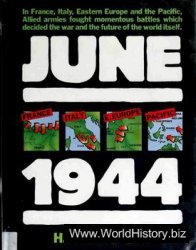France’s entry into the East-West conflict in the immediate aftermath of World War II was characterized by more hesitation and second thoughts than was the case for the other major Western powers. For de Gaulle and, after his withdrawal, for his successors as heads of the “tripartite” governments (a coalition of Christian Democrats, socialists, and Communists that remained in power until spring 1947), there were, by and large, three main reasons to observe the emergence of the Cold War with concern. First, international status: for a country still under the trauma of its defeat of 1940 and whose “rank” as a great power had been only halfheartedly recognized by the Big Three in 1945, there was an obvious interest in the preservation of the wartime “club” to which it had been admitted belatedly; the French, therefore, had strong misgivings as cracks began to develop in the victorious alliance between the Western powers and the Soviet Union soon after the end of the war.244 In addition, the emerging East-West divide carried the risk of cutting France’s ties with its traditional Central and East European allies, which had contributed to its standing after World War I, as exemplified by France’s links with the "Petite Entente" in the 1920s and 1930s.
The second reason was linked to national security. Because the potential resurgence of Germany as a long-term threat remained a major French concern after the war, in spite of the total defeat of the Nazi Reich, preserving a strong connection with Moscow was key in terms of military reassurance, hence the alliance treaty that de Gaulle had signed with Iosif Stalin in Moscow in December 1944. The connection with Moscow was also important in order to gain Soviet support for what was then France’s German policy, one of opposing the restoration of a central state across the Rhine and of amputating the territory of Germany while incorporating its western segments in a West European "grouping" of sorts, (such a grouping, in de Gaulle’s eyes, would also help France check the growing influence and power of Russia in Eastern Europe).
Finally, there was the issue of internal stability. With a significant participation in government, the French Communist Party (PCF) was then a decisive element in France’s diplomatic posture. Because it made alignment with the United States and confrontation with the USSR potentially troublesome in domestic terms, the Communist factor was a strong incentive for the maintenance of France’s proclaimed role as a "bridge" between the West and the East as set forth by de Gaulle, a policy staunchly defended by his early successors, especially the foreign minister, Georges Bidault, until 1947.
Perceptions of the Soviet Union and of East-West relations evolved rapidly, however. French decisionmakers were in fact quite lucid with regard to the Soviet challenge as early as 1945. While primarily the result of his impatience with the parliamentary system of the nascent Fourth Republic, de Gaulle’s withdrawal in January 1946 also reflected his frustration with France’s impotence against the backdrop of a quickly deteriorating East-West context. Yet these changing perceptions did not immediately lead to the adoption of new policies, if only because the domestic situation, still marked by the politics of "tripartism," made it difficult to change the course of French diplomacy. The turning point was reached in spring 1947. France, owing to converging factors, was now forced to acknowledge Cold War realities and the necessity for alignment in the East-West conflict. By then de Gaulle, now in the opposition, had adopted a hardline stance in these matters; in April, he launched the Rassemblement du peuple Jranfais (RPF), a right-wing party built on a staunchly anti-Soviet posture. And in May, the Communist ministers were dismissed from government by the socialist premier, Paul Ramadier. Although primarily a matter of domestic politics (in fact, most observers expected the
Communists to quickly come back in government), the move no doubt reflected the internalization of the East-West divide. By then, the Cold War had clearly settled into French politics.
Yet the shift in France’s East-West posture was primarily the result of the international context. It was the consequence, first and foremost, of increasingly aggressive Soviet behavior, which ran counter to France’s interests, especially in Eastern and Central Europe where the strengthening of Moscow’s grip cut France off from traditional allies. Moscow’s policies with respect to Germany were also a growing concern. The Four Powers’ foreign ministers conference in Moscow in March-April 1947 had shown that Stalin was not ready to support French territorial claims, in particular over the Saarland. Soviet aims vis-a-vis Germany were, in fact, increasingly seen as threatening to the West and to France. Not only was Moscow determined to incorporate the eastern part of the country in its sphere, but Stalin’s objective of securing Soviet influence over Germany as a whole by playing the "German card" was now seen as a major challenge by the French. In short, the perception of a Soviet threat was now looming larger in Paris than the fear of a restoration of an increasingly hypothetical German danger, a decisive and durable shift that the events of the following years - from the Prague coup to the Berlin blockade and the Korean War - would but confirm.
France’s gravitation to the West in 1947, therefore, was a result of the centrality of the German question in French perceptions: because the scheme of a Germany lastingly kept down jointly by France and the Soviet Union was now precluded and because the United States and the United Kingdom were increasingly pressuring them to that effect, the French, starting in 1948, recognized that solving the German problem implied just the reverse - rebuilding West Germany on Western terms and establishing a separate West German democratic state closely integrated into Euro-Atlantic institutions. This was a watershed in French diplomacy. In the wake of the creation of the Federal Republic of Germany (FRG) in 1949, it opened the way to the Schuman declaration of May 9, 1950, which laid a solid groundwork for Franco-German reconciliation and European integration. These twin objectives would, from then on, constitute France’s most consistent project, exerting a major influence on French policies throughout the Cold War (in turn, Franco-German reconciliation and European integration would profoundly change French perceptions of the German question over time, a development which also influenced France’s policies significantly, as would be seen at the end of the Cold War).
Evidently, none of the foregoing would have occurred without another, equally decisive, factor: the US engagement in Europe, which, starting in 1947, became massive. For France, as for other West European nations, the announcement of the Marshall Plan carried the promise of economic recovery and political stability; it was no surprise that Paris and London took the lead in organizing the West European response to the offer in the summer of 1947. Yet the prospect of a political alliance between America and Europe, which was discussed throughout 1948 and became a reality with the signing of the Washington Treaty in April 1949, was even more decisive. The Atlantic alliance indeed offered the country both a guarantee against the danger of Soviet belligerence and an insurance against the possibility of German resurgence. The alliance’s transformation into an integrated organization starting in 1950 and the stabilization of the US military presence in Europe confirmed this. The agonizing German rearmament question, from 1950 onwards, certainly revealed how delicate the balance between those two concerns was in those years as seen from Paris. However, the unfolding of the crisis over the European Defense Community (EDC) in the fall of 1954 and the FRG’s accession to the North Atlantic Treaty Organization (NATO) and the Western European Union (WEU) in 1955 definitively established the "double containment" (of the USSR, thanks to the Western alliance, and of West Germany within that same alliance) that would ensure France’s security and status in the decades to come. By the mid-1950s, the country had settled into the structure of the Cold War for good.




 World History
World History









